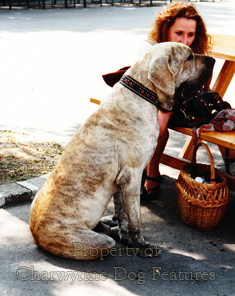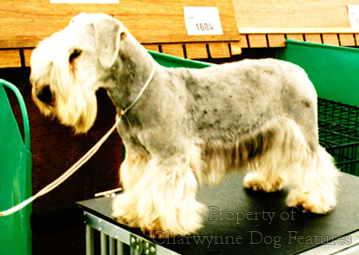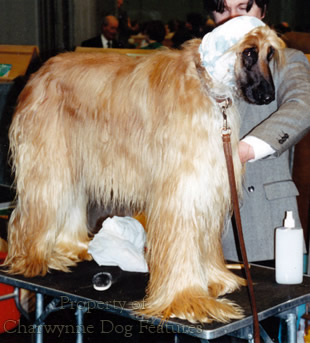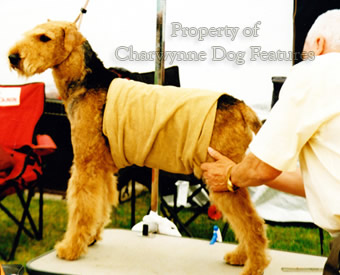930 THE NEW THREAT TO SPORTING DOGS
THE NEW THREAT TO SPORTING DOGS
by David Hancock

 The last century and a half has produced any number of serious threats to our sporting dogs. The advent of pedigree dog shows in the late 19th century steadily but remorselessly undermined the performance of every sporting breed by placing cosmetic appeal ahead of performance. Two World Wars seriously depleted the gene pools of so many breeds, increasing the likelihood of too-close breeding within closed gene pools. Ill-considered legislation, such as The Dangerous Dogs Act, initiated perhaps by well-meaning but ill-informed reformers, has led to the destruction of many thousands of innocent dogs, as well as banning the national breeds of Brazil and Argentina from our shores but not from those of the United States and many European countries. The Hunting with Dogs Act, as well as making 20,000 hounds miserable, has done little for fox welfare even if it has satisfied the moral vanity of the virtue-signalers amongst us. But significantly more dangerous to our sporting dogs has been not just the ever-increasing town-dwelling but far more threatening to sporting dogs, the increasing domination of town-thinking.
The last century and a half has produced any number of serious threats to our sporting dogs. The advent of pedigree dog shows in the late 19th century steadily but remorselessly undermined the performance of every sporting breed by placing cosmetic appeal ahead of performance. Two World Wars seriously depleted the gene pools of so many breeds, increasing the likelihood of too-close breeding within closed gene pools. Ill-considered legislation, such as The Dangerous Dogs Act, initiated perhaps by well-meaning but ill-informed reformers, has led to the destruction of many thousands of innocent dogs, as well as banning the national breeds of Brazil and Argentina from our shores but not from those of the United States and many European countries. The Hunting with Dogs Act, as well as making 20,000 hounds miserable, has done little for fox welfare even if it has satisfied the moral vanity of the virtue-signalers amongst us. But significantly more dangerous to our sporting dogs has been not just the ever-increasing town-dwelling but far more threatening to sporting dogs, the increasing domination of town-thinking.
It is a chilling thought that 2007 was the first in the history of mankind that more people lived in towns than outside them. This means that the metropolis, the main habitat, is gradually replacing the demos, the people themselves, as the word of the nations. Law-making is now more a matter for town-dwellers than country-dwellers. We are losing the balance we once had in Britain between the attitudes of city-folk and those of country-folk. Our laws should allow us to thrive not force us to defer. The words of John Locke, written in 1690: "...the end of law is, not to abolish or restrain, but to preserve and enlarge freedom..." apply more now than then. Locke was an English philosopher, the founder of political liberalism, who opposed what was then called 'the divine right of kings'. He would not have liked the divine right of the new metropolitan elite. There is nothing wrong with people who live in towns but a lot wrong with 'town-thinking', especially when imposed on country-dwellers. But as more and more of the latter are wealthy city-people moving out, the genuine, well-informed country opinions are being by-passed or even suppressed by sheer numbers.
But, cry the enlightened reformists, we must move on, be more civilised and remember how bull-baiting, bear-baiting and dog-fighting became outlawed. What they do not seem to understand is that these three barbaric so-called sports were pursued by city-folk not countrymen. But, cry the enlightened reformists, we must not be cruel to foxes. It is a waste of time telling them that the fox population has remained stable at around 250,000 for the last twenty-five years and that from 2006 it will not. Why should any livestock farmer or landowner with animals put up with fox-attacks when he can shoot as many as he likes and nobody cares? The Hunting Act may well prove to be the biggest single threat ever to the foxes of England and Wales. The British fox deserves conservation and countrymen provide that; our foxes do not deserve obliteration through misguided legislation as a result of irrational 'animal welfare' campaigns. In France, hunting is enshrined as a national right; here it has just become shorthand for fox-hunting - to the disservice of other country sports.
The restricted lifestyles of town-dwellers means restricted outlets for their dogs; sporting breeds kept in cities have no true outlet for their latent hunting instincts - just watch them seeking ground-scent in public parks to view the frustration of their inborn urges, now denied. Recently, in just one day, I saw a sad-looking Weimaraner tied to a push-chair, a fine Greyhound ostentatiously paraded in an expensive-looking coat but kept firmly on a very short lead, a sporting terrier, groomed to resemble a Bichon Frise, straining after grey squirrels in a public park - perhaps envying such pests their complete freedom, and an exaggerated caricature of a Basset Hound, its ears dragging along the floor, its belly all but doing so too. I talked to its owner who had no idea of the breed's function, what anatomy it should have to pursue such a function or even realised how the dog was being
penalised by its own construction, imposed by show-ring breeders, not sportsmen. Sporting breeds belong in the country. 
If Locke is right and the whole purpose of the law is to preserve and enlarge our freedom, not restrict or abolish it, then the laws passed by misguided do-gooders, either town-based or taking urban concepts unwisely to rural retreats, are not being respecters of the law and its purpose. Moral vanity or virtue-signing are instigators of far too much ill-informed, entirely misguided pressures on our national leaders. Its end-product is not just ignorant public attitudes but, even sadder, a total failure to think 'dog' before thinking 'what do I want'; what does my dog need is the first question an intelligent dog-owner should ask before condemning a sporting breed to a life of frustration and denial. Every day I pass a house containing two howling Labradors, left all day by their busy owners; their freedom has certainly not been preserved or enlarged!